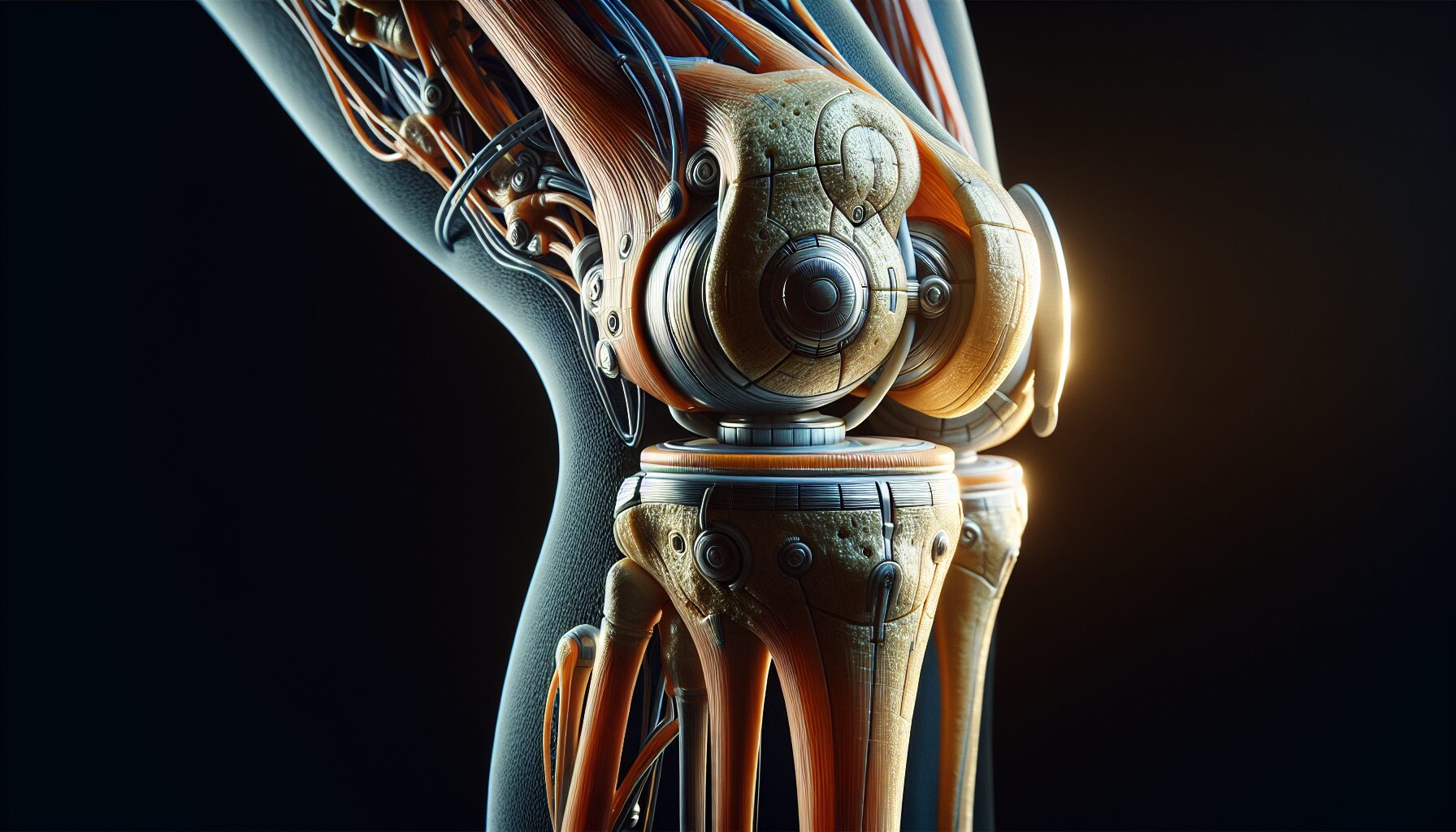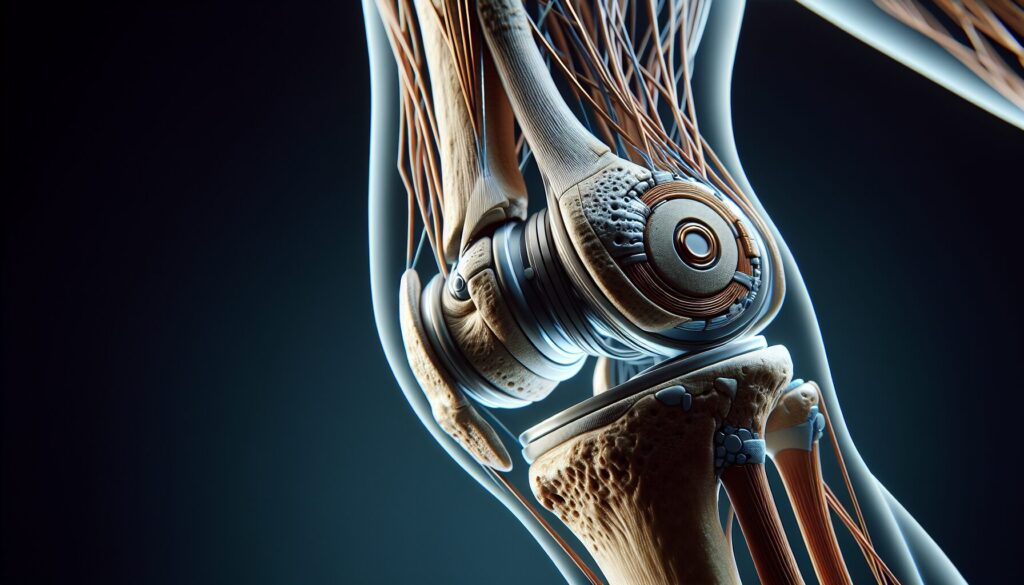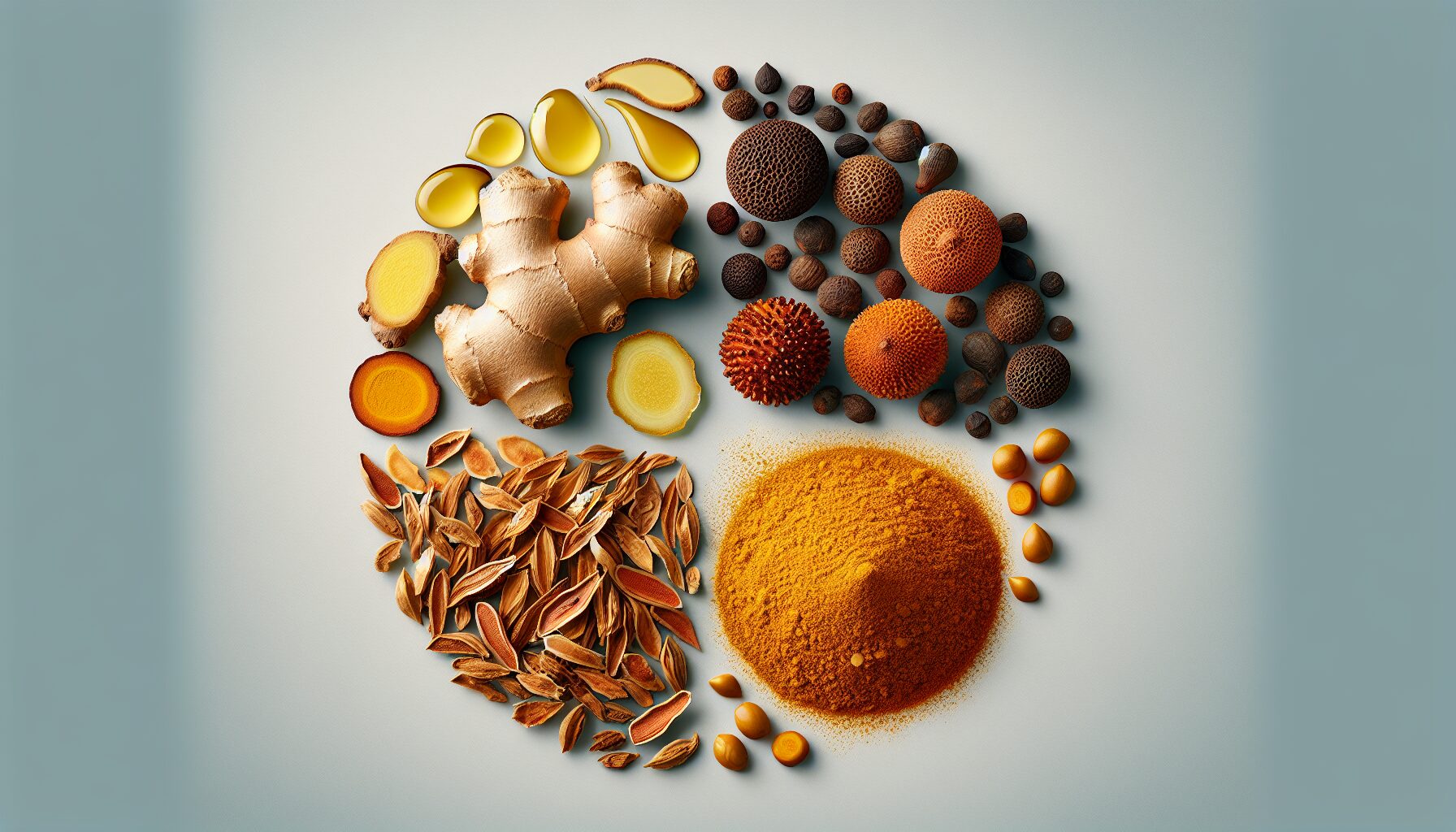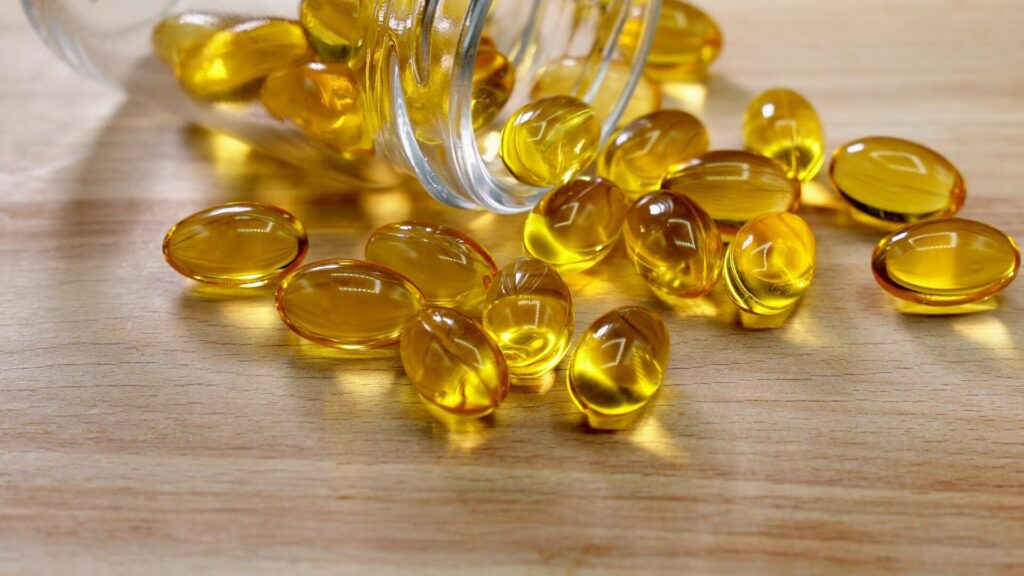
Best Nutrients For Joint Health
If you are looking for the best nutrients for joint health then look no further. The joints are a really important but often neglected part of the body. Without the right nutrients your joints can be more susceptible to damage and long-term issues. Your joints are essential for your everyday movements and become even more vital as you age. Osteoarthritis is quickly becoming one of the most common joint conditions globally, because of the increase in life expectancy.
The joints need regular maintenance and this requires a constant supply of nutrients such as amino acids, minerals and vitamins to work properly on a day-to-day basis. Your joints are just like your muscle tissues and can be repaired in most cases.
When the amount of wear and tear within the joints exceeds its daily maintenance, joint inflammation occurs. Inflammation is an initial response to external irritation or infection. Regular inflammation can become chronic and this is then diagnosed as a chronic inflammatory disease. Where the damage continues on a chronic basis, the damage becomes permanent. For example, chronic wear and tear of cartilage is not repairable by the body. In the worst cases, chronic inflammation can result in the formation of cancers as a secondary disease.
Nutrition massively influences human health outcomes. The right nutrients can provide preventative protection from inflammatory joint issues. Sufferers of inflammatory joint disorders, such as rheumatoid arthritis, seem to show poor nutrient status in a lot of cases. This is where adequate nutrient support can help. Here we have listed some key nutrients that can support with optimal joint health and healthy prevention of joint inflammation.

Nutrients That Are Important For Healthy Joints
As mentioned, your body goes through daily repair processes. Your joints are a part of this process. There is a growing and convincing body of evidence to suggest that several micronutrients can help to reduce symptoms of joint inflammation. Let’s discuss some key nutrients that can potentially help with optimal joint recovery.
Vitamin C
Vitamin C is one of the most important vitamins in the body for antioxidant support. Another name for vitamin C is ascorbic acid. Antioxidants like vitamin C are really important for sufferers of inflammatory joint diseases and joint inflammation because of their ability to supress inflammation.
Antioxidants could be useful for sufferers of joint inflammation specifically because they neutralise free radicals that cause cellular structures within joints to become damaged. Vitamin C, as well as other antioxidants, can also help with the recovery of body tissues from damage. For example, vitamin C can also induce stem cell mobilization in tendons. This could be very useful for sufferers of joint inflammation, who require optimal soft tissue recovery.
Collagen
Vitamin C is also important in the production of collagen. Collagen peptides are important nutrients required for the optimal healing of inflamed joints. These peptides form collagen, which is regularly synthesised in the body during recovery processes.
Collagen is a protein and is really important for optimal joint health. The presence of collagen in the joints provides structural integrity and elasticity for movement. The healing of tendons and ligaments is very interdependent on collagen synthesis. In our opinion, this is the single most important macronutrient for sufferers of joint inflammation.
While vitamin C assists with improving type I collagen production, it can also accelerate bone healing after fracture. Collagen is a complex protein and needs a supply of amino acids from dietary protein for its production such as lysine and proline. These are abundant in collagen peptides.
Collagen fibres form a very tough helix matrix. If you buy chicken legs, you can observe this for yourself. Improving your nutritional status of both collagen and vitamin C through supplements could improve outcomes from inflammatory joint diseases. As mentioned, we believe that collagen is one of the the best nutrients for the support of optimal joint health.
Studies Linking Collagen With Improvements In Joint Inflammation
There are various studies that outline how hydrolysed collagen or collagen peptides, the building blocks for body collagen, could have chondroprotective effects that are useful for sufferers of inflamed joints.
When trying to improve body collagen levels, it makes sense to consume its natural form building blocks. Collagen is the most abundant protein in the connective tissues of vertebrate animals found in the skin, bones and cartilage.
Studies have found that the peptides from long term ingestion of hydrolysed collagen are accumulated and detected in cartilage. Other than hydrolysed collagen, temperature denatured collagen or gelatin is another popular form of collagen nutritional support. There are also multiple types of collagen which need to be produced by the body.
The treatment of patients with 1.2g a day of hydrolyzed collagen peptides resulted in improvements in joint pain and function after 6 months. These results are consistent with so many other studies using collagen for joint inflammation. One other study found that symptoms of joint inflammation improved after just two weeks of hydrolyzed collagen supplementation with doses of 720mg per day followed by 360mg per day doses. Using native type II collagen, just 40mg per day, resulted in joint functional and joint pain reception improvements after 6 months.

Glucosamine And Chondroitin
As with the use of collagen, glucosamine and chondroitin are also used to help to aid long term symptoms of joint pain or inflammation.
Glucosamine and chondroitin are thought to be key nutrients that can help with the repair of inflamed joints. Glucosamine is an amino-sugar molecule that is made naturally by the body. It is needed for the production of macromolecules key to connective tissue health. These include hyaluronic acid and glycoproteins. Chondroitin sulfate is found in articular cartilage. Chondroitin is needed in the cartilage because it can absorb compressive forces acting on the cartilage. Both chondroitin and glucosamine are known to support the prevention of osteoarthritis or worsening of symptoms.
Supplementation studies with glucosamine and chondroitin showed that they can delay the onset of osteoarthritic knee disorders. This is because, as mentioned, they form basic natural components of your cartilage tissue. There are also a vast number of other studies that found similar results.
Chondroitin and glucosamine can therefore offer nutritional support for optimal joint health. Most clinical trials use 1500mg a day of glucosamine, with studies finding that it reduced pain, improved joint function and osteoarthritic progression.
Hyaluronic Acid
The synovial fluid is also very important for optimal joint movement and the reduction of inflammation in the joints. This fluid is naturally made by the body and as with collagen, building blocks can be supplied in the diet. Glucosamine and chondroitin form a key part of this fluid.
Another compound known as hyaluronic acid, also a popular treatment for joint diseases, is also found in abundant amounts in the synovial fluid. Glucosamine helps to form hyaluronic acid and chondroitin sulfate. Hyaluronic acid is found naturally in cartilage as part of this fluid and is also thought to show anti-arthritic effects. This occurs mostly through antioxidative effects but also cellular interactions.
There are many trials that effectively support that administration with high enough quantities of these synovial fluid building blocks can stabilize or reverse osteoarthritic joint pain and inflammation. The synovial fluid building blocks mentioned here are some of the best nutrients for the support of optimal joint health.

MSM
Collagen, chondroitin and glucosamine are the three key nutrients, or building blocks for healthy joints, cited most in the nutritional support of inflammatory joint diseases. However, as we have mentioned with vitamin C, antioxidants also play a massive role in the recovery of tissues and prevention of inflammatory damage in the body.
One such compound is MSM. MSM or methylsulfonylmethane is very well researched for its ability to slow the progression of osteoarthritis. MSM is an organosulfur compound with antioxidant properties. It could also support optimal joint health for those suffering from inflammatory joint diseases.
Vitamin E
Vitamin E is a strong antioxidant, well known for its antioxidant effects in the skin and cell membranes. Studies with vitamin E have shown that it can protect against harmful free radicals and enhance the growth of chondrocytes. This would show that vitamin E may also be able to support sufferers of inflammatory joint diseases. Studies with vitamin E have also shown that it has significant effects on the reduction of pain in sufferers of chronic inflammation too.
Zinc And Selenium
As a two of the most powerful antioxidant minerals needed by the body, zinc and selenium have the potential to assist with the reduction of inflammatory damage in the body. In inflammatory joint diseases, such as osteoarthritis, oxidative free radicals build up locally in the joints and sap antioxidants from the body. Sufferers of chronic inflammatory joint diseases have been measured to experience higher levels of oxidative stress.
Antioxidants provide a neutralising effect in these cases. Studies with selenium showed that it could potentially have a positive effect on joint pain and stiffness in inflammatory joint disease sufferers. Considering that selenium forms of the most powerful antioxidants available to the body, this is no surprise.
Patients with a specific form of musculoskeletal pain showed depleted levels of both zinc and selenium. This has also been observed with zinc status in a specific inflammatory knee disorder. Zinc also plays a role in the recovery of body tissues. This suggests that both selenium and zinc could offer nutrient support for suffers of inflammatory joint diseases.
Phytochemical Antioxidants
Phytochemical antioxidants include polyphenols for example from vegetables and spices. These can offer a similar antioxidant protective effect that antioxidant vitamins and minerals provide. They can neutralize cell and tissue damaging oxidative free radicals in joint tissues.
Herbal extracts such as Ginger root, Boswellia, Tamarind seed and Turmeric extract also offer phytochemical antioxidants that can support optimal joint health. Ginger root capsules have been shown to have antioxidant and dose dependent anti-inflammatory effects.
Turmeric is extremely well studied for its relieving effects on joint health. Tamarind seed extract has also been shown to relieve symptoms of arthritis. This is through active antioxidants in tamarind seed extract such as rutin and catechin. Boswellia has been shown to reduce inflammation and oxidative stress in collagen induced arthritis. Antioxidants in Boswellia reduced the buildup of proinflammatory cytokines.

Omega 3 Fatty Acids
Omega-3 is considered to be able to reduce joint inflammation in joint disease sufferers. Some omega 3 fatty acids including linolenic acid and EPA are known for anti-inflammatory actions. Clinical studies have linked omega 3 fatty acid production with improved collagen synthesis. This would mean that omega 3 fatty acids would support optimal joint health in the right quantities. Clinical studies have shown that they could possibly reduce symptoms of rheumatoid arthritis. In osteoarthritis, EPA and DPA omega 3 fatty acids reduced the symptoms of osteoarthritis. Omega 3 fatty acids could be some of the the best nutrients for the support of optimal joint health.

Summary
Here we have covered nutrients that are considered to be key for optimal joint health. Many of these have been studied clinically for their effects on improving symptoms or the status of inflammatory joint diseases.
Without the right nutrients your joints can be more susceptible to damage and long-term issues. Your joints require a constant supply of nutrients to work properly on a day-to-day basis. Sufferers of inflammatory joint disorders seem to show poor nutrient status in a lot of cases and improved nutritional status can help in many cases.
Antioxidants could be useful for helping with symptoms and amelioration of joint inflammation specifically because they neutralise free radicals. These cause cellular structures within joints to become damaged. Key antioxidants that could potentially help with joint inflammation include vitamin C, vitamin E, zinc, selenium, phytochemical antioxidants and MSM. Vitamin C is unique in that it can help to improve the synthesis of collagen, in addition to soft tissue recovery.
Collagen is a macromolecular protein that is an essential component of healthy joints. There are many clinical studies that link improvements in collagen status as a means to help with inflammatory joint issues. Collagen peptides, glucosamine, chondroitin and hyaluronic acid also offer nutritional support with inflammatory joint diseases. They form key parts of joints and synovial fluid. Omega 3 fatty acids such as DPA and EPA may also help with improving joint inflammation in joint disease sufferers.
As we’ve shown, there are many different nutrients that can best support optimal joint health. These can either be supplemented or eaten in your food as a means of supporting your wellbeing.
For more interesting articles, navigate to the main articles page below.





